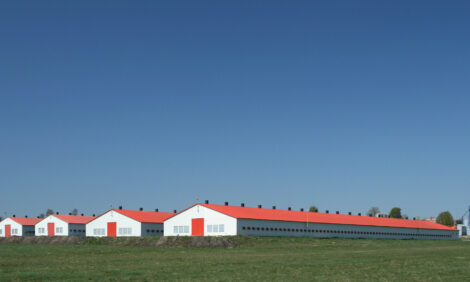



Views Vary over Chlorine Carcass Treatment Ban
RUSSIA - Russia and the US are facing tensions over poultry imports, reports the Russian press. Experts within the country are not unanimous in their support of the new ban on the use of chlorine as a poultry carcass rinse.Rospotrebnadzor, Russia's consumer rights authority, has required that domestic and foreign poultry producers minimise the use of chlorine in product processing starting from 1 January 2010, reports RIA Novosti, citing an article in Vedomosti.
US officials have expressed their discontent with the new rules, as chorine use in the meat industry is mandatory in that country. US producers annually supply $800 million worth of poultry products to Russia; their 2010 quota is 600,000 metric tons, or 20 per cent of the Russian market.
State Secretary of Agriculture, Tom Vilsack, told reporters last Friday that US-Russian relations may become strained over poultry differences. He also claimed that many Russian producers use chlorine in poultry processing. However, local companies denied his allegations.
"Nearly all Russian poultry producers have stopped using chlorine over the past year. They treat meat with other agents based on organic acids," said Albert Davleyev, vice president of the USAPEEC International Poultry Development Program, adding that those substances are several times more expensive than chlorine.
Russian poultry farmers are not unanimous on the expediency of banning chlorine treatment of their products. Their representatives gathered in December to work out and approve industry regulations but failed to arrive at a compromise.
Pavel Sorokin, professor at Moscow State Agriculture Engineering University, said microbiological risks of using meat without chlorine treatment are much higher than potential hazards of chlorine consumption, including its carcinogenic effect, according to RIA Novosti.
Andrei Terekhin, President of the Russian Poultry Market Operators Association, said it is important to avoid residual chlorine in end products, not its use in processing.
Mr Davleyev said: "According to the state statistics committee, every Russian consumes an average of 22kg of poultry a year and drinks around 300 litres of chlorine-treated water. Does that mean we should ban drinking water?"
Musheg Mamikonyan, head of the Russian Meat Union, denied any political reasons for the conflict. He said poultry processing with chlorine is a topic for discussion among medical professionals and biologists.
Mr Mamikonyan said: "If the idea was to oust American producers from the market, they could have simply cut the quota and raised the import tax. This would have worked faster and quieter."
Further Reading
| - | Go to our previous news item on this story by clicking here. |








